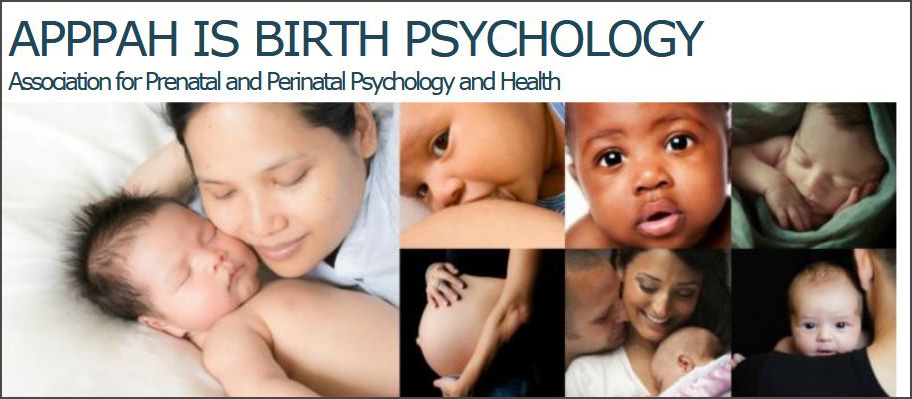The process of development of a human being is a continuous process, a soul journey that reminds us of the hero who is leaving his home (the place from where our soul comes from – Soul Group/Over Soul/ Higher Soul), exceed challenges (the challenge of birthing), interact with other characters (ex. his parents, midwife) and „live happily ever after” (until his death).
From the point of view of pre and perinatal psychology, we are focusing on the following stages: preconception, conception, implantation, the time in the womb, birth and the first three years of the baby, which have huge importance for the future development of the individual and the society.
Human development is „an approach that is focused on people and their opportunities and choices” (UNDP). From this perspective the pre and perinatal psychology is useful not only for babies in the womb, newborns, preparing to become pregnant or already pregnant women and mothers, but it has benefits for a larger group of people, for example: adults and older children that are healing their early traumas, specialists from different areas of expertise that want to have a deeper knowledge and expertise regarding the early period in life, social policy experts that want to have a long term view regarding the development of the society.
Pre and perinatal psychology offers the following opportunities and choices for people in order for them „to develop to their full potential and to have a reasonable chance of leading productive and creative lives that they value. ”(UNDP):
• Bonding and attachment: Secure attachments start from preconception, is developed prenatally and in the first years of life and are the primary foundation for supportive, loving and healthy relations. „Optimal foundations of secure attachment and healthy relationships are predicated upon optimal relationships during the preconception period, during pregnancy, the birth experience and the first year of life.”(Glenn, M. & McCarty, WA., 2008)
• Epigenetics: It's not only the story carried in our genes that create the human. The environment has a great influence on how gene express. There are many studies from different fields (ex. medicine, epigenetics, psychology, nutrition) that confirm that the environment (chemicals/toxins, pollution), mother's health (medical health problems), nutrition, medication and addictions (ex. alcohol & drugs), emotional state (thoughts, stress), family stories (ex. „ghosts and echos”) influences the child development from the womb to his adult life and even future generations. „Optimal foundations for growth and resiliency, including brain development, emotional intelligence, and self-regulation are predicated upon optimal conditions during the pre-conception period, pregnancy, birth and the first year of life.”(Glenn, M. & McCarty, WA., 2008)
• Parenthood: „Parenthood involves far more than uniting sperm and ova: it involves nourishing, protecting, guiding, and helping children. The failure of parenthood is the crack in the dike of civilization. [...] The transformation we seek is not from the top down but from the bottom up: primal change, changed foundations. Children cannot be transformed without first transforming parents into aware, sensitive, loving persons. And probably parents cannot be transformed without education about prenatal life and without support and love for them. This represents a new realism, that society has its origins in parents and babies, and a new realism that nurturance is the core of parenting-the fuel of love that makes things work. Look at the world around you. Can human development go forward without nurturance to mind and spirit?” (Chamberlain, D. B., 1994)
• Personal development & health in adults: „The foundational benefit of pre and perinatal therapy is that it will teach you about your emotional self, your thinking and beliefs, and the patterns you play out in relationships, especially those whose roots lie in your beginnings and remain in your unconscious, affecting your current life. Your ancestral patterns, prenatal period, birth and first 18 months of life experiences are encoded into your body and in your implicit memory. If powerful and unaddressed, these encoded memories often run in the background, creating filters for life’s experiences for positive and negative recapitulating patterns. These patterns can also include health issues, including cardiac, respiratory and immune system disorders. Fifty percent of the etiology of these health issues stems from prenatal experiences.” (White, K. & Martin, M., 2012)
• Moral development and behavior: „An individual person's moral development and behavior begin with, and are influenced by, prenatal and perinatal experiences. Any design or model for moral education must acknowledge the formative influence of these prenatal and perinatal experiences on later moral development. [...] human development that is dependent on mutual connection and affectional bonding between people. When honored, this biological design leads a person from conception to maturity through death with a sense of belonging to a group. A person cannot become fully human, capable of functioning in a group, without this sense of belonging. Within the group, the individual can be guided toward moral conduct. Since the origins of love as well as of alienation and violence lie in prenatal and perinatal life, everything possible must be done on behalf of the prenate and neonate to ensure that he or she grows into a healthy, feeling child. Any comprehensive design for moral education must recognize the critical importance of this early foundation.” (Dosh, M.A., 1999)
• Best choices for human development in the early period
- Conscious conception: The preconception and conception period is very important in human development because the „ground” in which the new baby will come must be healed from the personal and family ghosts and nurtured with awareness, respect and love for the new soul. Also, the body of the women must receive nutritional support to hold the pregnancy. „An adult’s unconscious pre and perinatal pattern can influence how a baby is conceived, nurtured, born and raised.” (White, K. & Martin, M., 2012)
- Birthing practices and recovery from birth: It's proven that births with little or no intervention are optimal for babies and mothers. The way the baby was birth will imprint the human with unconscious patterns that will influence the mental and emotional health. „If all parents, midwives, nurses, and obstetricians understood that babies are fully aware and intelligent both before and during their births, it could transform the way babies are welcomed into the world.” (Chamberlain, D. B., 1994)
- Skin-to-skin and self-attachment: „The benefits of skin to- skin practices after birth include temperature regulation, improved breastfeeding initiation rates, glucose regulation, normalized heart rate variability, increased bonding between mom and baby, and decreased crying and fear.” (White, K. & Martin, M., 2012)
- Breastfeeding: „WHO and UNICEF recommend that children initiate breastfeeding within the first hour of birth and be exclusively breastfed for the first 6 months of life – meaning no other foods or liquids are provided, including water. Infants should be breastfed on demand – that is as often as the child wants, day and night. ” (WHO) Breastfeeding is improving the physical health of mother and child, but also to improved intellectual and psycho-emotional outcomes.
- Family and community support for mothers: When mothers receive support during pregnancy and postpartum period the rates of depression and anxiety are low. Due to the intimate connection between mother and baby, the emotional states of the mother are transmitted to the fetus/baby, which can be developed later in his life into behavioral, psychical and emotional problems.
- Education & Services: Prenatal education is our true "primary education”, as Dr. Chamberlain, said and it's most important to:
- support babies and their families with education and services from the preconception period: „These early diminishing patterns are imbedded below the level of the conscious mind in the implicit memory system, subconscious, and somatic patterns. Professionals trained in primary psychology (prenatal and perinatal psychology) can identify these patterns and support babies, children, parents and adults to heal and shift these primary patterns to more life-enhancing ones at any age. When parents resolve and heal their own unresolved issues from their child’s pregnancy and birth, their children benefit at any age.”(Glenn, M. & McCarty, WA., 2008)
- create a network of pre and perinatal specialists that will work with babies and families. „Prenatal and perinatal psychology professionals are trained to work directly with babies and their parents during the prenatal and postnatal period to prevent and treat early trauma, thereby preventing a potential cascade of later problems.[...] we most effectively prevent the costly cascading effects of less than optimal beginnings, both in terms of loss of human potential and human capital.” (Glenn, M. & McCarty, WA., 2008)
References:
1. Ann Diamond Weinstein, Prenatal Development and Parents' Lived Experiences (W.W. Norton & Company, 2016), p 5.
2. Glenn, M. & McCarty, WA. (2008) Investing in human potential from the beginning of life: key to maximizing human capital. Journal of the Association for Prenatal and Perinatal Psychology and Health23(2): 117-136.
3. Morningstar, S. (2013). Voices of the children. Position paper, Association for Preand Perinatal Psychology and Health.
4. White, K. & Martin, M. (2012). Pre and perinatal experiences for health and healing. Pathways to Family Wellness, 36, 10-19.
5. Chamberlain, D. B.. (Spring 1994).How Pre- and Perinatal Psychology Can Transform the World. Pre- and Perinatal Psychology Journal 8. 3 : 187-199
6. Dosh, M.A. (1999). Prenatal and Perinatal Foundations of Moral Development . Journal of the Association for Prenatal and Perinatal Psychology and Health 13(3-4): 213- 223
7. World Health Organization. Breastfeeding. Recommendations. https://www.who.int/health-topics/breastfeeding
8. United Nations Development Program. About Human Development. What is human development?. http://hdr.undp.org/en/humandev


